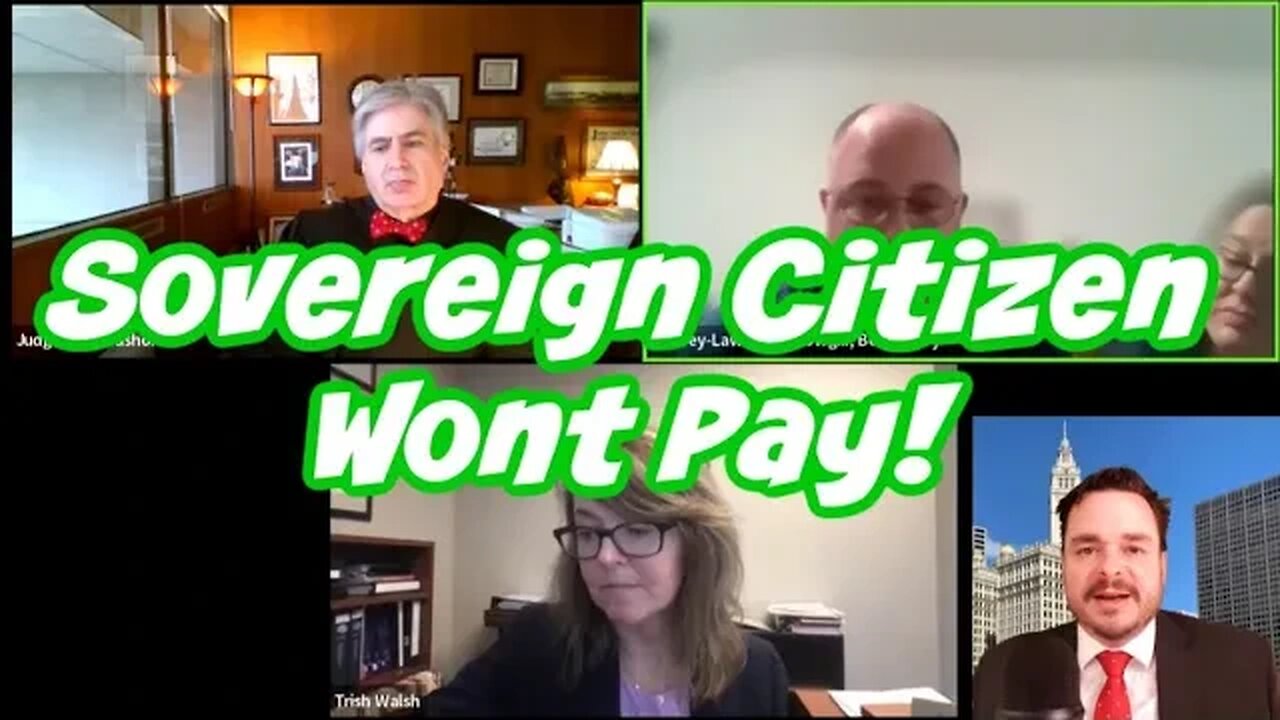Has A Sovereign Citizen Ever Won In Court

The courtroom doors swing open, not to the expected scene of legal professionals engaged in complex arguments, but sometimes to a stage for individuals declaring themselves beyond the reach of established law. These are often members of the sovereign citizen movement, a loosely affiliated group known for their unconventional legal theories and defiance of governmental authority.
Their arguments, often steeped in historical misinterpretations and elaborate paperwork, frequently meet with judicial skepticism and resounding defeat. But the persistent question remains: Has a sovereign citizen, armed with their unique interpretations of the law, ever actually *won* in court? The answer is complex, fraught with nuance, and often misunderstood, demanding a careful examination of what constitutes a "win" and the specific circumstances involved.
The Core Beliefs of the Sovereign Citizen Movement
At the heart of the sovereign citizen ideology lies the belief that individuals can declare themselves exempt from the laws and regulations of the United States and its states.
This exemption, they argue, stems from a supposed distinction between a "natural person" and a "legal person," the latter being a fictitious entity created by the government. By renouncing their "legal person," they believe they can operate outside the system.
Common tactics include filing frivolous lawsuits, creating elaborate pseudo-legal documents, and refusing to pay taxes or acknowledge court authority.
Defining "Winning" in the Context of Sovereign Citizen Cases
The challenge in determining whether a sovereign citizen has "won" hinges on defining what constitutes a victory. A dismissal on a technicality is far different than a judge siding with the merit of their legal arguments.
Most of their cases are dismissed outright for lack of legal standing, frivolousness, or failure to follow court procedure. In these scenarios, they certainly do not win.
A true victory would involve a court explicitly acknowledging the validity of their sovereign citizen arguments and ruling in their favor based on those arguments.
Anecdotal Claims vs. Verifiable Evidence
Proponents of the sovereign citizen movement often circulate stories of supposed courtroom victories, typically through online forums and social media. These accounts are rarely corroborated by reliable sources. Often, these are exaggerated or entirely fabricated. Claims of victories should always be taken with a grain of salt.
Fact-checking such claims is crucial. It's easy to misinterpret a temporary procedural delay, a dismissed minor charge, or a negotiated settlement as a validation of their ideology. This is misleading at best and demonstrably false at worst.
Instances of Dismissals and Procedural Errors
While sovereign citizens rarely, if ever, secure victories based on the merits of their arguments, cases can be dismissed for various reasons unrelated to their sovereign citizen status.
For example, a case might be dismissed due to prosecutorial misconduct, lack of evidence, or a violation of the defendant's constitutional rights, issues applicable to any defendant regardless of their beliefs. These are not victories for their ideology.
Furthermore, a defendant might successfully negotiate a plea bargain to a lesser charge, which, while technically resolving the case, doesn't validate their sovereign citizen claims.
The Consequences of Sovereign Citizen Ideology
Adopting sovereign citizen beliefs often leads to serious legal and financial consequences.
Refusing to pay taxes, resisting arrest, or engaging in fraudulent schemes can result in criminal charges, hefty fines, and imprisonment. The courts have little patience for individuals who deliberately obstruct the legal process.
Furthermore, their complex and often nonsensical legal filings can clog up the court system, wasting judicial resources and delaying justice for others.
Official Statements and Law Enforcement Perspectives
The Federal Bureau of Investigation (FBI) has designated sovereign citizens as domestic terrorists, citing their history of violence and anti-government extremism.
Law enforcement agencies across the country have encountered sovereign citizens in various contexts, from traffic stops to armed standoffs.
The Southern Poverty Law Center (SPLC) closely monitors the sovereign citizen movement and provides resources for law enforcement and the public to understand their ideology and tactics. Their assessment of the movement is clear: it poses a significant threat.
Expert Legal Analysis
Legal scholars overwhelmingly dismiss the legal theories espoused by sovereign citizens. The overwhelming consensus is that these theories are based on misinterpretations of historical documents and a fundamental misunderstanding of the legal system.
Courts consistently reject their arguments, citing established legal precedent and constitutional principles. There's no legal basis for the claim that individuals can exempt themselves from the laws of the United States.
The consistent rejection of these arguments reinforces the well established framework of judicial practice in America.
Looking Ahead: The Ongoing Challenge
The sovereign citizen movement continues to pose a challenge to the legal system and law enforcement agencies.
Their persistent attempts to circumvent the law, coupled with their potential for violence, require ongoing vigilance and education. Combating the spread of their ideology requires debunking their false claims and promoting a better understanding of civic responsibility.
While anecdotal stories might surface periodically, the fundamental truth remains: sovereign citizen arguments have not, and are unlikely to be, validated in a legitimate court of law. A dismissal due to procedural issues or a technicality is a far cry from a victory rooted in the merits of their claims.


















